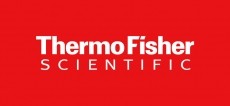Web-based pedigree system launched in US
an online, web-based pharmaceutical tracking system - called the
Pedigree Security Network - to help combat drug counterfeiting.
PD-Rx - a US Food and drug Administration-licensed drug manufacturer and packager - claims to be one of the first pharmaceutical firms to offer such a tracking system.
By next year, laws in several US states will dictate that all drugs must have pedigrees, either paper-based or electronic, to ehlp prevent drug counterfeiting and diversion. One early adopter of a paper-based system is Florida, although its framework has met resistance from drug wholesalers who say it is cumbersome and expensive to implement. An elecronic pedigree should be quicker and easier to implement.
The PD-Rx website will provide each customer with the ability to interface with the company's data files on every medication, according to the company. The system allows drugs to be tracked from the point of our order, through any packaging that may occur, to the point of shipment to the customer.
Shawn Stephens, a director at PD-Rx, said the web based system is completely integrated with the firm's internal accounting systems, and builds the pedigree in place, instead of storing a 'pedigree paper' for retrieval.
With the use of custom designed bar codes, each customer will be able to scan the individual product and print a secure pedigree at anytime on-line with PD-Rx. The pedigree includes additional information such as common carrier tracking numbers, the exact amount of each lot number shipped, past shipments, organoleptic markings and product descriptions.
In the future, PD-Rx plans to upgrade the system, firstly to a two-dimensional barcode then to a radiofrequency identification (RFID) system that will store additional information and security measures. This will occer 'as the technology becomes economically feasible and the balance of the industry is capable of supporting such technology', said the company.
The need for technologies to help distinguish counterfeit drugs from their genuine counterparts was brought into focus by an investigative report published in the open-access health journal PloS Medicine in March, which suggested that up to 15 per cent of all drugs sold worldwide - worth of $35 billion (€25bn) - are fakes.










